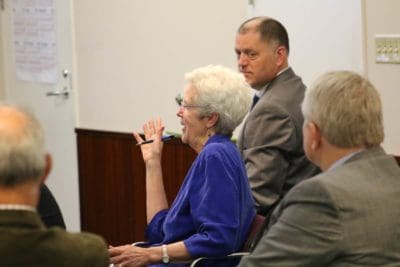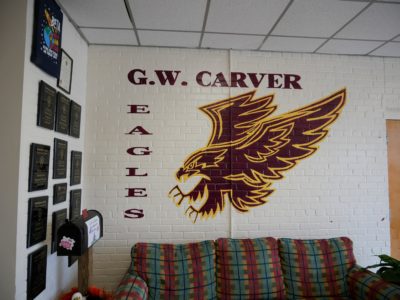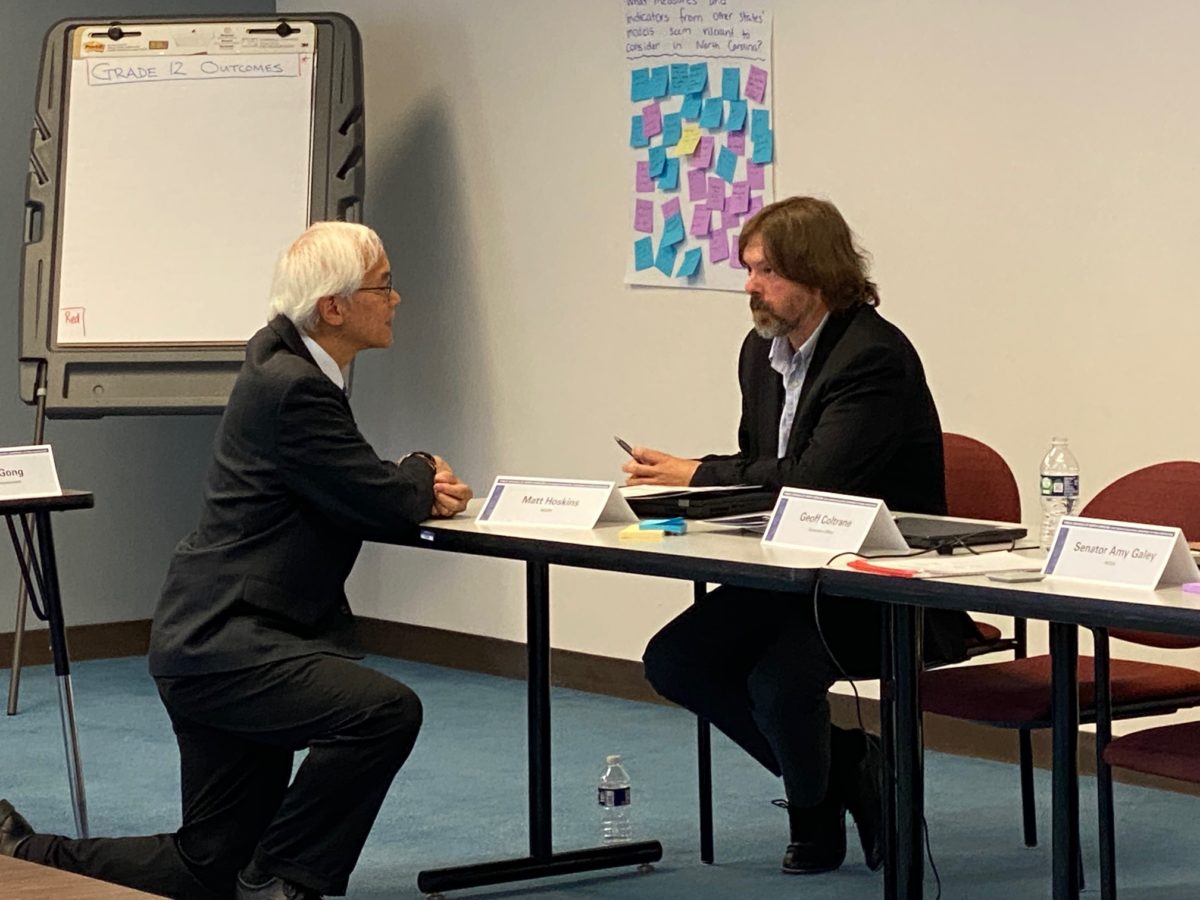
Share this story
- .@ncpublicschools convened an advisory group to redesign the accountability model used to give schools performance grades. The group is charged with developing multi-measure models that move beyond compliance with federal guidelines. #nced
- "The current accountability model does not do justice to the hard work that teachers and students put in every day in schools across the state. ... I look forward to working with stakeholders to consider other metrics," said @CTruittNCDPI.
It is no secret that state leaders think it is time to reconsider the accountability model used to give schools performance grades across North Carolina.
State Superintendent of Public Instruction Catherine Truitt has been critical of the model, including during her testimony earlier this year before the House Select Committee on An Education System for North Carolina’s Future.
“We need to redefine school accountability and rethink what student testing looks like,” she told the committee.
When school performance grades were released earlier this month, only one member of the N.C. State Board of Education spoke in favor of them.
But it is not just state leaders who are ready for a change.
“The reason we are here today is probably the one thing in education right now that everyone is like, ‘yep, it’s gotta change,'” said Truitt on Monday. “This model is flawed, and we need to change it. Why do we need to change it? We need to change it because it is not an accurate reflection of what school quality is. It’s not an accurate reflection of student success. And those two things are important because the accountability model of a school, of a district, of a state drives everything else.”
The N.C. Department of Public Instruction (DPI) convened an advisory group to redesign the model between now and January ahead of the long session in the N.C. General Assembly. The group met virtually on Thursday, Sept. 8, and then in person on Monday, Sept. 12. It will meet virtually in October, November, and December, and then in person again in January 2023.
“Buckle up,” said Kristie VanAuken, the special assistant to the superintendent on workforce engagement.
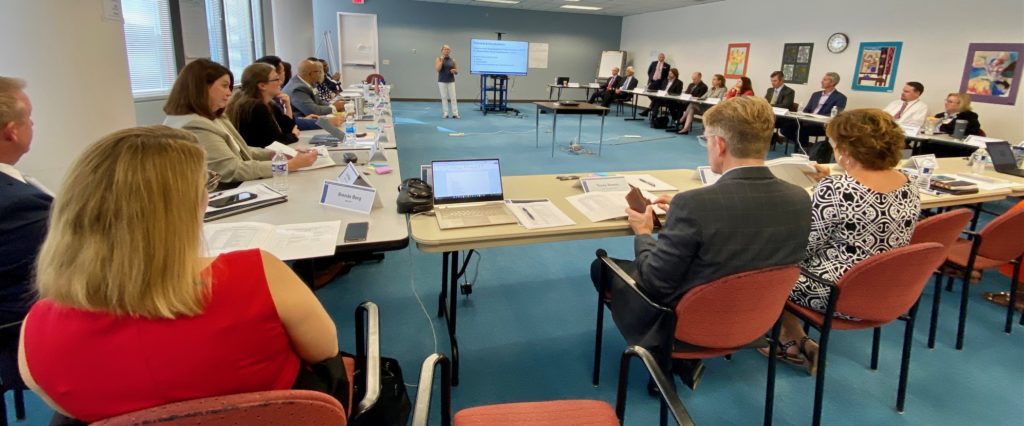
The group is charged with developing multi-measure models that move beyond compliance with federal guidelines. The process is designed to determine “as a state, what do we think are the most important factors when determining the quality of a school?” said Dr. Michael Maher, the executive director of the Office of Learning and Recovery.
To that end, the work will be transparent and inclusive. Maher said in both meetings, “this is not secret work.”
The current model
According to a briefing by Dr. Tammy Howard, DPI’s director of accountability, school performance grades were first reported in 2012-13 in North Carolina. The grades include end-of-grade and end-of-course test scores, completion of higher level math courses, the progress of English learners, cohort graduation rates, the ACT, WorkKeys, and growth.
The school grades are based on each school’s achievement score (weighted 80%) and each school’s students’ academic growth (weighted 20%), according to the state’s 2021-22 accountability framework.
“It’s very heavily concentrated on test scores,” said Howard. “The opportunity here is to look at some other indicators getting back to those things that as as state and as a community of educators and policymakers and stakeholders that we would like to focus on in showing how our schools function and some of the positive attributes of their work.”
Here is the current law, N.C. General Statute section 115C-83.15.
A look at the history and background of accountability
Dr. Brian Gong and Dr. Chris Brandt with the national Center for Assessment facilitated the meeting on Monday. The Center helps states and school districts “design assessments and assessment systems that meet technical and policy goals to support student learning and for other critical uses.” In the history of the organization, the Center has worked with almost all 50 states.
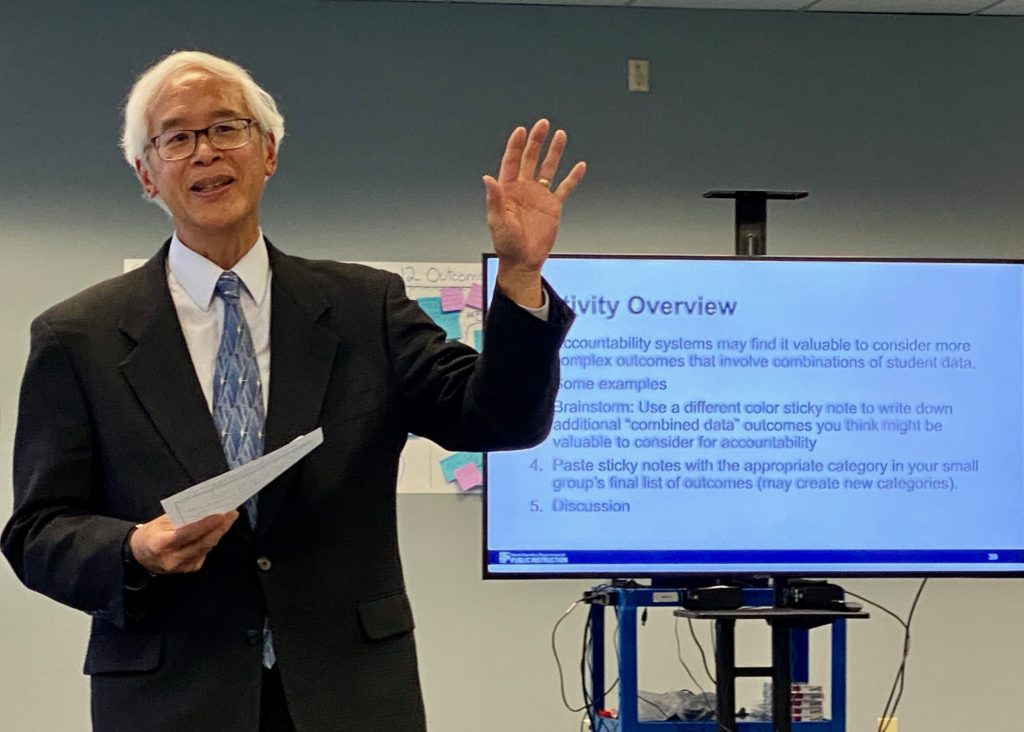
States around the country adopt one of two approaches: they either adopt a model for approval by the federal government or they adopt both a state and federal accountability model.
While there are federal requirements the group will have to take into consideration, Gong and Brandt said the state can create it’s own accountability system that reflects the state’s values and brings in all kinds of indicators and measures beyond what federal law requires. Here is a 50-state comparison of accountability models by Education Commission of the States.


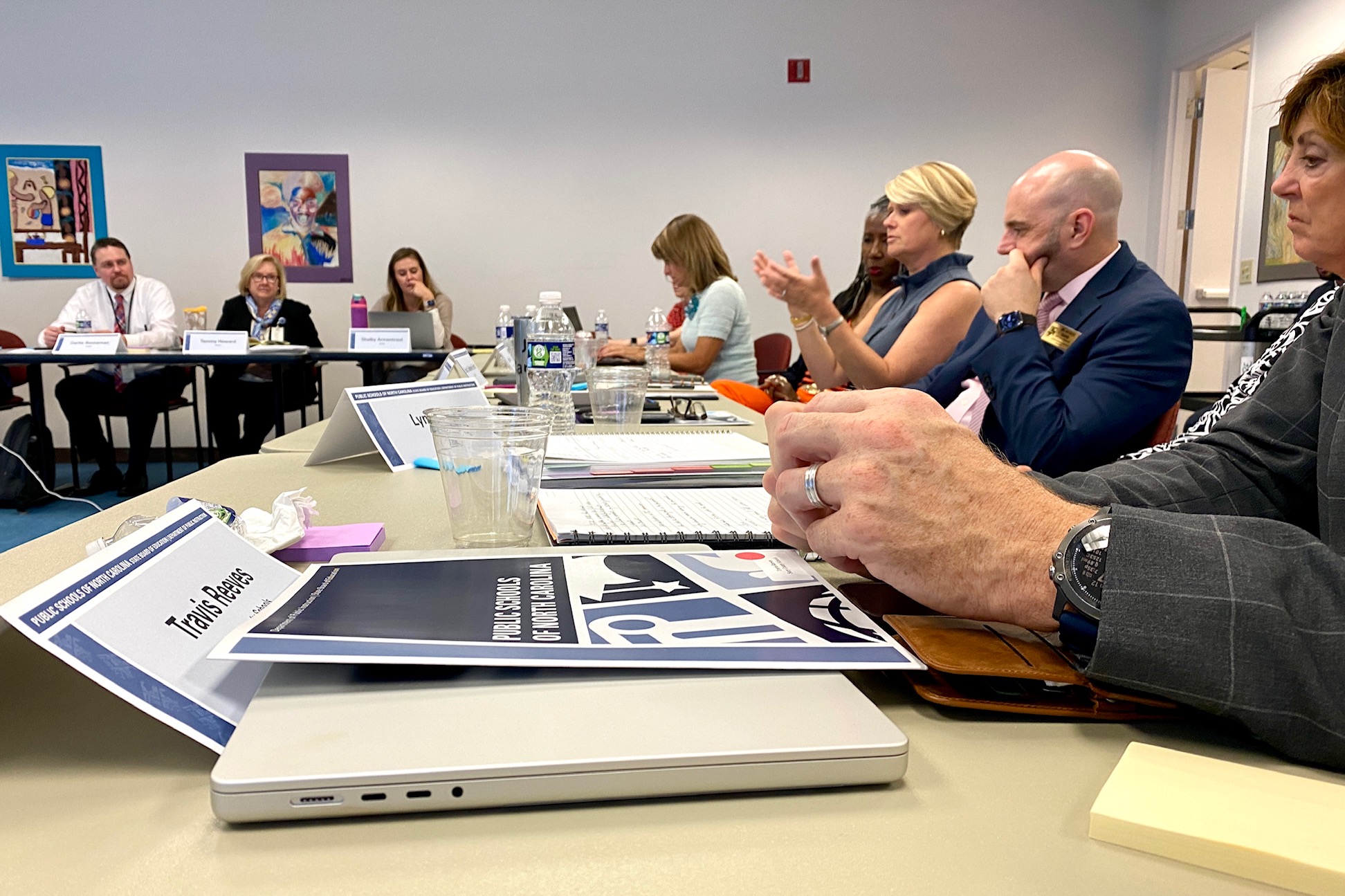
In small groups, the members of the advisory group wrestled with four questions:
- What are the advantages and disadvantages of specific indicators/measures?
- How do (or don’t) these other states’ indicators reflect important values in North Carolina?
- What measures and indicators from other states’ models seems relevant to consider in North Carolina?
- What are the advantages and disadvantages of more versus less prescriptive systems?
The small groups also brainstormed student outcomes working backwards from grade 12 to grade 8 to grade 5. Toward the end of the meeting, members weighed in on important characteristics of schools. Here is the complete slide deck.
Who is in the advisory group?
The members of the Operation Polaris Testing and Accountability Advisory Group include:
Sen. Amy Galey, R-Alamance; Rep. Ashton Clemmons, D-Guilford; Rep. David Willis, R-Union; Brenda Berg, Best NC; Bruce Mack, NC Community Colleges; Debra Derr, NC Chamber; Diana Lys, UNC Chapel Hill; Don Phipps, Superintendent, Caldwell County Schools; Edward McFarland, Wake County Schools; Frank Barnes, Charlotte-Mecklenburg Schools; Geoff Coltrane, Governor’s Office; Jessica Swencki, myFutureNC; Jill Camnitz, NC State Board of Education; Jordan Whichard, NC Department of Commerce; NC Teacher of the Year Leah Carper; Lynn Moody, Strategic Advisor SPARK NC; Superintendent Michael Sasscer, Edenton-Chowan Schools; Nick King, Johnston County Schools; NC Principal of the Year Patrick Greene; and Superintendent Travis Reeves, Surry County Schools.
Gong and Brandt with the Center for Assessment were also in the meeting along with Truitt and DPI staff, including Andrew Smith, Angie Mullennix, Blair Rhodes, Charles Aiken, Curtis Sonneman, Jeni Corn, Jeremy Gibbs, Kristi Day, Kristie VanAuken, Marie Pitre-Martin, Matt Hoskins, Maxey Moore, Michael Maher, Shelby Armentrout, Sherry Thomas, Tammy Howard, Tom Tomberlin, and Trey Michael.
Between now and the next meeting in October, extensive surveying and polling will take place to include as many voices in the process as possible.
In a recent press release, Truitt said, “The current accountability model does not do justice to the hard work that teachers and students put in every day in schools across the state, and I look forward to working with stakeholders to consider other metrics important to determining school quality.”
Recommended reading
